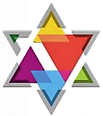Looking at the blessed time of the Elohim which comes every seventh day, completing the week. The Shabbat representing completion. Delighting in the Shabbat has evolved over time, but it is for believers still a day of blessings and delight by bringing mercy and love, blessing and joy to others, and refreshing our souls.
Tag: Shabbat
Yes, to heal the world
- point of Judaism = tasked with mission > Judaism antidote to many of the greatest problems we face in the 21st Century.
- religion gives a sense of community, purpose + meaning.
- why progressive Judaism = our way forward
- Progressive Judaism has come under attack.
- Jonathan Neumann’s book entitled ‘To Heal the World?’ its subtitle – ‘How the Jewish Left Corrupts Judaism and Endangers Israel’ – tells everything you need to know about this book. = argues that progressive Jews distorted Judaism + created their own denomination, completely divorced from tradition.
- Jewish mysticism > world in which we live = broken => through pursuit of social justice > begin to heal it => (for Neumann) idea = innovation = ideology of American New Left + Jewish theology.
- ‘tikkun olam’ new development= rallying cry to bring together many of issues on which Jewish community in America was campaigning, particularly black civil rights, women’s liberation + international peace.
- idea > Judaism’s core = one of social justice = integral to progressive Judaism since its inception.
- Rabbi Abraham Geiger in 19th Century Germany, argued > soul of Judaism =/= in its laws > = in its prophetic texts.
- Reformers repositioned Judaism from its narrow focus on ritual to universalist message of justice.
- Prophet Elijah harbinger of messianic redemption = first among our prophets to promise that messianic age is coming.
- promise of liberation = built into very understanding of what it means to live a Jewish life => must participate in building it through pursuit of justice, by following consciences, + by seeking to make the world a more loving place.
- tikkun olam’ message can be found throughout the Tanakh, rabbinic literature, + our liturgy = core of what Judaism calls on us to do.
- Neumann argues deviation from traditional Judaism > progressive Judaism must be contrasted with ‘traditional’ Judaism => seems not to understand Orthodox Judaism = a modern innovation = response to modern world, that takes a conservative approach to life + a dogmatic approach to commandments.
- at our most Jewish when we are sharing food with others.
- Neumann’s idea of traditional Judaism = narrow + limiting
- progressives, halachic observance + social justice are not competitors = complement each other.
- food laws help > force to think ethically about consumption.
- Shabbat = joy > teaches value of rest + holiness of God.
- All rules + rituals have value > turn us into disciplined, conscientious people, who will seek out justice when it is necessary.
- Progressive Judaism > point of Judaism =/= rules in themselves => = pursuit of better world through rules
- message = clear > short time on earth + here with a mission => tasked with a sacred purpose of perfecting the world, demanding justice and pursuing peace = point of Judaism +> Let us work to heal the world together.
+
Preceding
What is the point of Judaism?
Last night, I gave a defence of Judaism for the disengaged. I argued that religion gives us a sense of community, purpose and meaning. I talked about how Judaism is an antidote to many of the greatest problems we face in the 21st Century.
This morning, I want to talk about why progressive Judaism, specifically, ought to be our way forward. Progressive Judaism has, in recent years, come under attack. Last year, Jonathan Neumann released a book entitled ‘To Heal the World?’. Its subtitle – ‘How the Jewish Left Corrupts Judaism and Endangers Israel’ – probably tells you everything you need to know about this book.
In it, he argues that progressive Jews have distorted Judaism and created their own denomination, completely divorced from tradition. He pours scorn on one idea in particular, that of ‘tikkun olam’. The basic premise of this…
View original post 1,082 more words
Reading to grow and to become wise concerning the most important thing in life 1 Times of reading
In ancient times on market days and the days people where free, they came together to listen to the reading of the Torah. Today any day could be used to come together to listen to the reading of the Holy Scriptures. Written and oral material was brought from one generation into an other and formed the base for the construction of many communities or religious groups and denominations.




